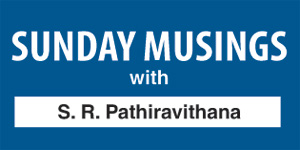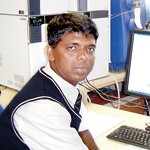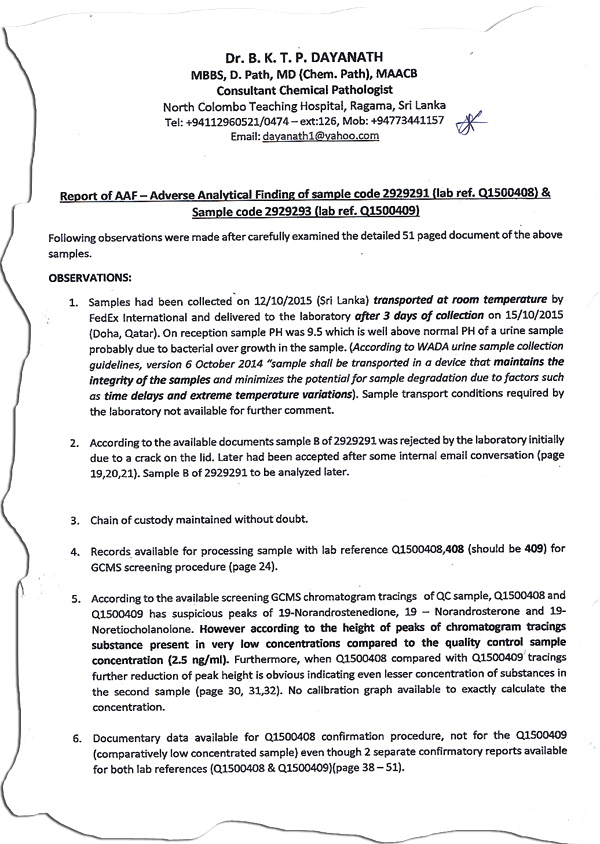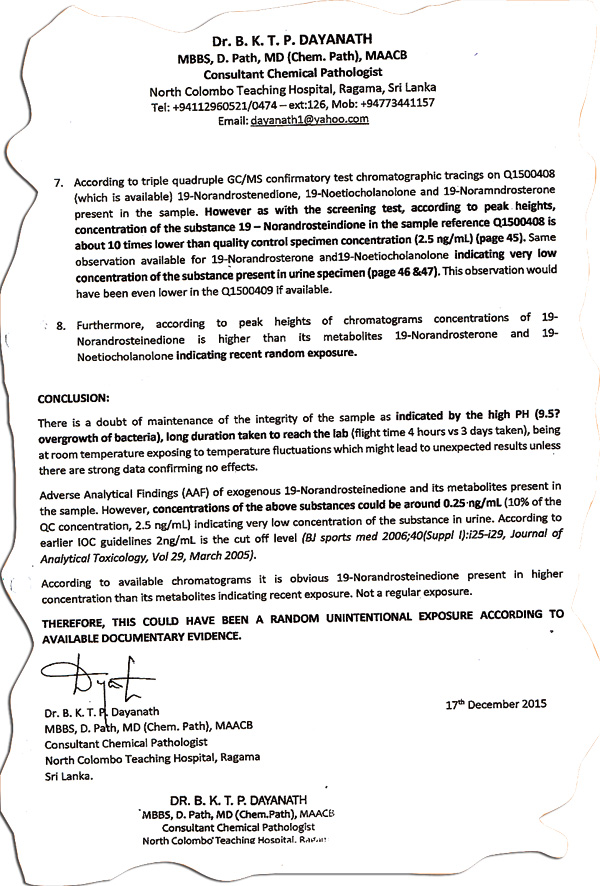Kusal’s WADA hook and the four-centimetre clip
View(s): From a formative stage, one of the strong ingredients that Kusal Janith Perera carried in his system was resolute. When he initially held the bat, he gripped the handle as a right-hander and that is the way he started his cricket in the initial years in the family back yard. Soon, he found out that it was an impediment. Playing softball cricket down his lane, he found it difficult to score because playing big shots as a right-hander his shots often landed in an adjacent plot which was a no-go zone and as a result, he was given out as per the backyard rule.
From a formative stage, one of the strong ingredients that Kusal Janith Perera carried in his system was resolute. When he initially held the bat, he gripped the handle as a right-hander and that is the way he started his cricket in the initial years in the family back yard. Soon, he found out that it was an impediment. Playing softball cricket down his lane, he found it difficult to score because playing big shots as a right-hander his shots often landed in an adjacent plot which was a no-go zone and as a result, he was given out as per the backyard rule.
So, he decided to emulate his hero Sanath Jayasuriya and gripped the bat left handed and thumped — the ploy worked. He used to score a lot of runs as a left hander and he was almost eleven years old. This prompted him to go for practices for the under thirteen team at his school, Dharmapala Kottawa. He found his place only as a fielder, says Kusal. Then one day he was given a chance to play in the under 13 ‘B’ team and in that match he scored 47, and thus Kusal Janith Perera the batsman was born.

Kusal’s WADA hook and the four-centimetre clip
While turning out for Dharmapala Kottawa, he was picked to represent the national team in the under fourteen age group and soon after Kusal was selected to be a member of the national under seventeen side. At that time the school at Kottawa did not have a first XI team. So, the other schools began to target him. There were many openings for Kusal — many schools invited him to join them. Nevertheless Kusal decided to join Royal College. Kusal said, “I was playing under seventeen cricket at that time, but, in the very first year I played the big match and I got my college colours. Funnily at that time there was a college rule that stated that coloursmen were not permitted to play in the under seventeen team, but, I did not miss much of cricket, because by then I was in the national junior pools. I represented Royal four seasons, in spite of not being able to play a full season because of my national commitment on many an occasion. However, in the last big match against S. Thomas’, I scored my farewell knock of 141”.
It was a story of true grit. In school, there were others who shone as much as he or more — like Bhanuka Rajapaksa and Kithruwan Perera. But it was Kusal Janith Perera who established himself as an international star. Coming into fame also has its own pitfalls. He nearly learned his first mistake prior to last year’s WADA (World Anti-Doping Agency) incident. Had he fallen into the trap at that time it would have been ‘poda’ for him in international cricket; I guess for good.
 Kusal described the incident in his own words: “This guy was a good friend of mine and he used to play mercantile cricket. Nevertheless we used to move very closely as good friends. Just before the first Test against the West Indies at Galle last year, my friend approached me and requested me to score less than 18 runs in the first innings and if I did that they would pay me ten million rupees. I first asked him if he was joking. When I realised that he was not joking, I just told him that ‘I was not ready for that’. I did not stop at that, I promptly reported the incident to the authorities who in turn reported it to the Anti-Corruption Unit of the ICC. Now they are moving ahead with the case. In that innings, I just managed to pass the cut off score of 18 and scored five runs more before getting out. It was telling on me”
Kusal described the incident in his own words: “This guy was a good friend of mine and he used to play mercantile cricket. Nevertheless we used to move very closely as good friends. Just before the first Test against the West Indies at Galle last year, my friend approached me and requested me to score less than 18 runs in the first innings and if I did that they would pay me ten million rupees. I first asked him if he was joking. When I realised that he was not joking, I just told him that ‘I was not ready for that’. I did not stop at that, I promptly reported the incident to the authorities who in turn reported it to the Anti-Corruption Unit of the ICC. Now they are moving ahead with the case. In that innings, I just managed to pass the cut off score of 18 and scored five runs more before getting out. It was telling on me”
It was at the same time around that the urine samples were also taken. Then while in Dunedin, New Zealand, Kusal received that dreaded phone call that nearly shattered his life for the second time within a few days. But, this time it was severe because he was being accused of a crime he never committed.
Promptly, he was flown back to Sri Lanka and further he was not permitted to take part in any cricket-related activities. Kusal described the situation: “Though I continued my physical fitness routine, I really did not feel like holding a bat.”
This time it was Ravi de Silva – Kusal’s manager who mediated. Explaining the crisis and how they managed it, de Silva said: “The lad was left almost in the lurch. We needed a lawyer to ascertain as to what our next move should be. Being a man born for cricket – Dinal Philips the eminent lawyer was the first choice.
“At the initial stages yes, it was a lawyer-client association, but, soon I guessed he also started to believe that Kusal was innocent. Soon the association grew into something more. In fact Philips put a lot of hard yards. Soon Philips also was into the case neck deep, taking the case as a challenge. In the midst of this turbulence, Philips contacted Consultant Chemical Pathologist Dr. B.K.T.P. Dayanath to obtain his opinion on the issue.
“We first learned about the case going our way from Dr. Dayanath. We first met him at the car park of the National Hospital. Later he told us, ‘Look we have to question this. This is well below the limit.” (Please see the montage for Dr. Dayanath’s report).
“Only at that time there was a change of the SLC management and Thilanga Sumathipala took charge of the case and handed the case to solicitors Morgan in London.”
The law firm invited Ravi and Kusal to London for the latter to undergo Polygraph tests and the hair tests.
De Silva explained: “The hair tests were interesting. First Kusal Janith was asked not to cut his hair for two months. When the time was up while in London, a female doctor clipped four centimetres off Kusal’s hair and ouriered it to a laboratory in Paris to do the hair test. In both tests the report was ‘No signs of any abuse’. I must say Morgan handled the case in a very professional manner.
All these test results coming in favour of Kusal, the ICC came under pressure to review Kusal’s case. The ICC began to question the validity of the Qatar laboratory tests, based on which Kusal was suspended. According to de Silva, they are not willing to take this lying-low. “We will go along with the SLC stance on it. However, we feel that we are dealing with a product. I will allow this product to dilute. It will be placed in the market at the proper time. At the same time, we do not want this happening to another sportsperson. Kusal will lead a crusade to save athletes. He will use his example to advise victims of similar cases that this is the way to go forward.”




